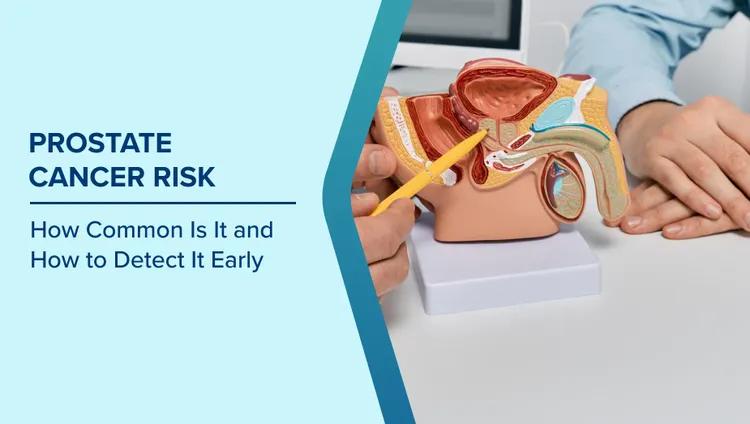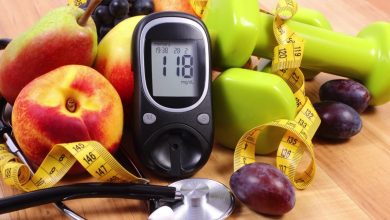How to Lower Your Prostate Cancer Risk: Doctors Reveal 7 Proven Habits

Prostate cancer is one of the most common cancers among men worldwide, yet the good news is that research shows certain lifestyle choices can significantly reduce your risk. While no single habit can guarantee prevention, doctors agree that adopting healthy routines can make a meaningful difference.
In this comprehensive guide, we’ll dive deep into seven proven habits recommended by doctors and backed by science that can help you lower your prostate cancer risk, live healthier, and feel more in control of your future.
Why Prostate Cancer Prevention Matters
Prostate cancer typically develops slowly, but once it spreads, treatment becomes more complex. According to the World Health Organization(WHO), prostate cancer is the second most commonly diagnosed cancer in men, and early prevention is key.
Many men don’t realize that everyday habits—what you eat, how you move, and even how well you sleep—can influence prostate health. Doctors emphasize prevention not just to lower cancer risk but also to improve overall well-being.
Now, let’s uncover the seven proven habits that could protect your prostate and extend your health span.
1. Eat a Prostate-Friendly Diet
Your diet plays one of the biggest roles in cancer prevention. Doctors highlight certain foods that help lower inflammation and oxidative stress, two major contributors to cancer growth.
Foods to Add:
- Tomatoes and tomato products – Rich in lycopene, a powerful antioxidant linked to lower prostate cancer risk. Cooked tomatoes (like pasta sauce or tomato soup) are even more effective because cooking boosts lycopene availability.
- Cruciferous vegetables – Broccoli, cauliflower, cabbage, and Brussels sprouts contain sulforaphane, which supports detoxification and cancer defense.
- Fatty fish – Salmon, mackerel, and sardines provide omega-3 fatty acids that reduce inflammation.
- Green tea – Contains catechins, which may help slow cancer cell growth.
- Nuts and seeds – A healthy source of zinc and vitamin E, important for prostate health.
Foods to Limit:
- Red and processed meats (bacon, sausages, hot dogs)
- Sugary drinks and desserts
- Fried and fast foods are high in unhealthy fats
Pro tip: Follow a Mediterranean-style diet—plenty of vegetables, whole grains, lean proteins, and healthy fats. Studies consistently show it lowers the risk of prostate cancer and heart disease simultaneously.
2. Maintain a Healthy Weight
Excess body fat doesn’t just affect your appearance—it fuels inflammation and hormonal imbalances that can promote prostate cancer.
- Obesity has been linked to more aggressive prostate cancer.
- Belly fat in particular increases levels of insulin and estrogen, both of which may stimulate cancer growth.
Doctors recommend:
- Keeping your Body Mass Index (BMI) in the healthy range (18.5–24.9).
- Combining regular exercise with portion control.
- Avoiding crash diets and instead focusing on sustainable lifestyle changes.
Think of weight management as cancer insurance: the healthier your weight, the lower your overall cancer risk.
3. Exercise Regularly
Movement is medicine, and when it comes to prostate health, doctors emphasize that consistent physical activity can lower risk by improving circulation, balancing hormones, and strengthening the immune system.
Benefits of Exercise for Prostate Health:
- Reduces insulin resistance and inflammation.
- Helps regulate testosterone and other hormones.
- Improves mental health, reducing stress (another risk factor).
What to Aim For:
- 150 minutes of moderate activity (brisk walking, cycling, swimming) per week.
- Or 75 minutes of vigorous activity (running, HIIT workouts) per week.
- Include strength training twice a week—muscle mass helps regulate metabolism and hormone balance.
Even simple activities like gardening, dancing, or walking your dog count. The key is consistency.
4. Limit Alcohol and Quit Smoking
Both alcohol and tobacco introduce harmful toxins that can weaken your body’s defenses against cancer.
- Smoking: While smoking is more strongly tied to lung cancer, studies show it also raises the risk of aggressive prostate cancer and recurrence after treatment.
- Alcohol: Heavy drinking can damage the liver and disrupt hormone metabolism, indirectly affecting prostate health.
Doctors advise:
- If you drink, limit alcohol to no more than 2 drinks per day (preferably less).
- Quit smoking as soon as possible. The benefits begin within weeks—your blood pressure, circulation, and immune response all improve quickly.
This habit isn’t just about prostate cancer—it improves your entire life expectancy.
5. Get Regular Screenings and Checkups
Early detection is crucial for prostate cancer. The tricky part is that many men don’t experience noticeable symptoms in the early stages. That’s why screenings matter.
Common Screening Methods:
- PSA test (Prostate-Specific Antigen): Measures PSA levels in your blood. Higher levels may indicate prostate issues.
- Digital rectal exam (DRE): Allows doctors to feel for abnormalities in the prostate.
When to start:
- Average-risk men: Begin discussions at age 50.
- High-risk men (family history, African ancestry): Start at age 40–45.
Don’t skip these checkups—early detection can mean simpler treatments and higher survival rates.
6. Manage Stress and Prioritize Mental Health
Stress doesn’t directly cause prostate cancer, but it does weaken your immune system and can lead to unhealthy coping habits like overeating, drinking, or smoking.
Proven Stress-Management Techniques:
- Mindfulness and meditation – Even 10 minutes daily lowers cortisol (stress hormone).
- Yoga or tai chi – Improves both mental and physical well-being.
- Quality sleep – Aim for 7–9 hours nightly; sleep regulates hormones and supports immune health.
- Social connections – Strong relationships reduce stress and improve resilience against illness.
Your mind and body are interconnected. Taking care of one automatically strengthens the other.
7. Know Your Family History and Genetic Risk
Genetics plays a powerful role in prostate cancer risk. If your father, brother, or grandfather had prostate cancer, you may be at a 2–3 3-times higher risk.
What to Do If You Have a Family History:
- Get screened earlier (age 40–45).
- Consider genetic counseling if multiple relatives have had prostate, breast, or ovarian cancer.
- Take extra care with lifestyle habits, since your baseline risk is higher.
Knowledge is power—understanding your family history allows you to take proactive steps rather than waiting for problems to appear.
Additional Tips for Prostate Health
- Stay hydrated: Adequate water intake supports urinary and prostate function.
- Limit dairy: Some studies link excessive dairy to increased prostate cancer risk. Opt for plant-based alternatives when possible.
- Consider vitamin D: Men with low vitamin D levels may face a higher risk; sunlight exposure and supplementation can help.
- Eat more fiber: Improves gut health, which is connected to lower inflammation.
Frequently Asked Questions (FAQs)
- Can supplements prevent prostate cancer?
Doctors recommend getting nutrients from whole foods first. While supplements like vitamin D or omega-3s may help if you’re deficient, they should never replace a healthy diet.
- Does frequent ejaculation lower prostate cancer risk?
Some studies suggest that men who ejaculate more often (around 21 times per month) may have a slightly reduced risk. The reason may be improved prostate clearance of toxins.
- Is prostate cancer always deadly?
Not at all. Many prostate cancers grow slowly and may never become life-threatening. However, aggressive forms do exist, making prevention and screening essential.
- Does coffee increase or decrease risk?
Moderate coffee consumption (2–3 cups daily) may actually lower prostate cancer risk, thanks to antioxidants. Excessive caffeine, however, can affect sleep and stress levels.
Conclusion: Small Habits, Big Protection
Prostate cancer prevention isn’t about drastic changes—it’s about consistent, smart habits. Doctors stress that combining a healthy diet, regular exercise, stress management, and regular screenings can dramatically reduce your risk.
Here’s a quick recap of the 7 proven habits to lower prostate cancer risk:
- Eat a prostate-friendly diet.
- Maintain a healthy weight.
- Exercise regularly.
- Limit alcohol and quit smoking.
- Get regular screenings.
- Manage stress and mental health.
- Understand your family history.
By adopting these habits, you’re not only protecting your prostate but also improving your overall health, longevity, and quality of life. Prevention is always better than cure—and the time to start is today.




